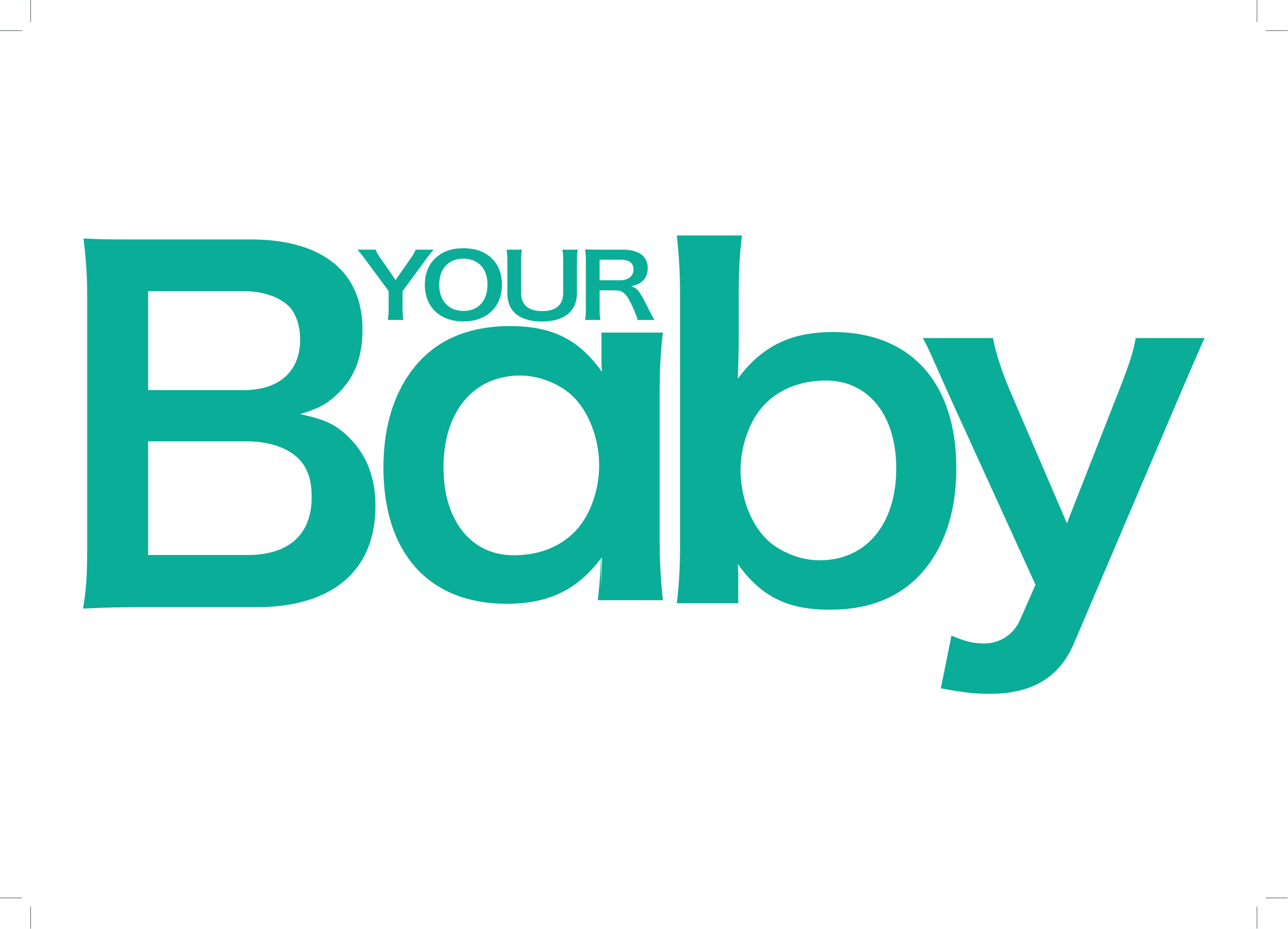
This article first appeared in the July/August 2017 issue of Your Baby magazine.
DID YOU KNOW a baby’s brain contains about 100 billion nerve cells at birth? And by the age of 3, these cells or neurons have connected with others and increased to about 100 trillion? These links or “brain paths” are formed through repeated stimulation and interaction.
So if you can stimulate your little one in the first 3 years, you can do a lot to help build those neural pathways and nerve cells. Contrary to what one might think, stimulation does not necessarily happen through brain-building games and exercises.
Rather, the most important thing you can do for your child’s early brain development is to provide him with an emotionally safe environment and shower him with loads of love and attention. It’s true! According to a 2010 research report from Philadelphia in the USA, children who got more attention and care at home have higher IQs than others who are not that lucky.
The researchers found a strong correlation between nurturing before the age of 4 and the size of the hippocampus, the part of the brain that is linked to memory. It is one of the first studies showing how the type of childhood you have contributes to determine the structure of the developing brain and proves the importance of a happy and nurturing environment from a very early age.
There are of course a number of other factors that influence brain development too. We look at 3 of the most important of these, namely: nutrition, sleep and play.
- Also see: Mozart magic and the developing brain
1. Nutrition & IQ: How you can help
Mareli Conradie, dietician, shares advice:
- Breastfeed for as long as possible. Not only does breastmilk contain taurine, but it also contains the correct fatty acids. Continue to nurse, even when your baby’s already on solids. Every little bit of breastmilk he gets is worth it. If you can’t nurse or have to supplement breastmilk with formula, choose one that’s enriched with taurine and the necessary fatty acids.
- Increase the fatty acid content of your breastmilk by getting enough of it in your own diet. Eat two 120g portions of fish per week, or otherwise make sure to eat food enriched with omega-3 fatty acids every day. You can also take an omega-3 supplement that provides 300mg EPA and HDA. An omega-3 supplement can also be taken during pregnancy.
- When babies start eating solids, most of their food is poor in omega-3s. Babies under a year old were traditionally not given fish, for fear of allergic reactions. But there is increasing evidence that children who eat fish from 6 months are no more allergic than kids who only start eating it at a year old.
- Allow your baby of between 6 and 9 months to start eating meat to provide for his taurine needs.
- Another alternative is to give your baby a supplement containing the correct omega-3 and omega-6 fats. It’s usually available as an oil capsule, and you can mix the oil with your baby’s food or milk.
2. Sleep & IQ
Erica Neser, author of How Babies and Toddlers Really Sleep, says sleep has a specific kind of impact on how a baby’s brain develops. “Baby sleep cycles vary between light and deep sleep. In one cycle of about an hour the baby’s brain first stores memories, then paths between brain cells are laid down, and at the end of the cycle the brain secretes growth hormones.
A baby that sleeps on mom’s chest experiences all the correct sleep phases, but if they sleep alone, they don’t experience the cycle at all. That’s according to well-known paediatrician and academic Dr Nils Bergman from the organisation Neuroscience for Improved Neonatal Outcomes in Cape Town.
Nils also pioneered kangaroo care in South Africa and specialises in researching skin-on-skin contact between mom and baby. A baby who sleeps alone might look like he’s sleeping soundly, but his brainwaves are scrambled, Dr Bergman says. He believes babies should be in contact with their moms to ensure that their brains follow healthy cycles.
Many parents fear that their baby’s brain will not develop properly if they don’t sleep enough, and that drives some parents to try and “teach” their babies to sleep through the night, Erica says. They do sleep training where their baby is left to cry for longer and longer stretches while he’s ignored, but it does not lead to healthy brain growth.
Many psychologists warn against this kind of sleep training, says Erica. She believes a healthy sleep pattern consists of various blocks of about one hour each, with feeds and comfort throughout the night.
Between 3 and 12 months of age, these blocks are gradually consolidated. “Babies aren’t supposed to sleep through from very early on. It’s normal to wake up often in the first year to nurse or be comforted,” says Erica. “It’s natural and healthy that a baby sleeps close to his mom, and it leads to healthy cycles in the brain and more rest for everyone.”
Erica says you can support your baby’s brain growth by nurturing him and reacting when he cries. It lays the foundation for love and trust, which leads to less stress. “Accept that interrupted sleep is normal until 3, 4 years old. And forget about strict schedules and don’t expect a set routine before 6 months.”
- Also see: Maths for kids at 30 months!
3. Movement & IQ: Play with your baby
Movement is important for brain development, says Carina van der Westhuizen, an occupational therapist from Krugersdorp. “The more a baby moves, the more his senses are stimulated, which in turn broadens his knowledge of the world. Movement is very important for sensory stimulation. Carrying, swinging, rocking and turning stimulates the senses and is important at a later stage for balance, planning and organisation,” she says.
While your baby moves, various neurological pathways are fostered, which the brain then recalls at a later stage. As soon as gross motor skills are well developed, the focus can move to the development of fine muscles of the hands and fingers, Carina says.
Movement: How you can help
- Place your baby on his side, and roll his whole body forward onto his tummy or back onto his back. Do it a couple of times and then leave him to see if he can roll by himself.
- You can also try it later, when he’s on his back. Remember always to roll baby onto both sides.
- Crawling is very important for development, balance, bilateral integration and crossing of the midline. Place your baby across your thigh, and help him carry his weight on his hands. Put some toys out for him to reach out to.
- If your child starts putting weight on his hands, you can put his feet in the crawling position. Let him rock back and forth across your leg.
- Build a course for your child once he starts crawling with objects that he needs to crawl over or under. This is important for spatial planning.
Also see: Your baby's IQ
Activities for brain development from ages 0-1
- Massage helps the brain to develop a map of the body. Name and move the body parts while you massage.
- Let your child lie on his back on your lap. Bring the two hands towards each other in the middle of his body and then move them to his mouth.
- Then take the hands to the feet and repeat the movement roughly 3 times to encourage him to become aware of his body. You can take hand to opposite foot and bring the two together. In this way, crossing the midline is already encouraged at an early stage.
- Cycle your baby’s legs.
- Hold your baby close and turn to both sides.
- Let your baby lie on his back, lift the hips and bottom and keep it in the air while his feet remain on the ground.
- Tummy time is strongly encouraged. Start with short bursts and as baby becomes stronger, he can be placed on his tummy for longer periods. Tummy time strengthens muscles in the neck, back and arms that are important for rolling, crawling, reaching out to objects and playing. Parental supervision is important, and baby should rather lie on a harder surface than on a pillow to avoid the risk of suffocation.
- Stimulate your baby with ball games. It’s a lovely activity to promote movement and stimulate the vestibular system. Start bouncing your 2- or 3-month-old baby on a ball. Support the hips and thighs with your hands, and place a hand behind his back to prevent him from falling backwards.
- Lie your baby across the ball on his tummy, and rock him forwards and backwards.
- Once your baby’s 7 to 9 months old, you can gradually provide less support and stability when he’s on the ball. Just hold his hips or legs and help him move forward, backward and to the left and right; it’s important for his balance.
- Later on you can place objects in front of the ball for him to pick up while you support his body.
- Many studies have shown how good it is for brain development to be carried close to mom’s body. Buy a pouch.
- Chat to your baby and show him things in his environment. React when he makes sounds and start “chatting”.
- Start reading stories at an early age, and recite poems.
- Sing to and play music for your child.
- Keep his attention by pulling faces and blow him a raspberry, for instance.
- Mimic each other. Babies love that.
- Expensive toys aren’t necessarily the best for your baby. Invest in the kind that stimulates as many senses as possible. Consider mobiles, rattles, toy phones, blocks, balls, and rings, toys that make a noise, fabric books and toys with contrasting colours.
Thank you to the experts who helped with this article:
Has your newborn ever done something that's totally surprised you? When did you first notice their personality forming? Tell us in the comment section below or email chatback@parent24.com and we may publish it.




 Publications
Publications
 Partners
Partners














